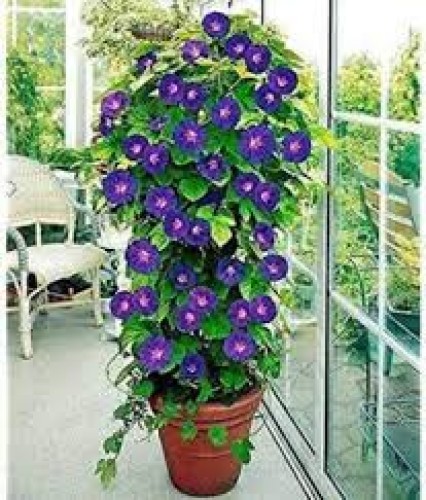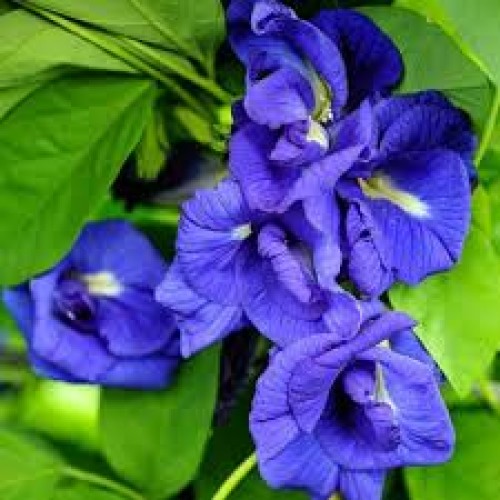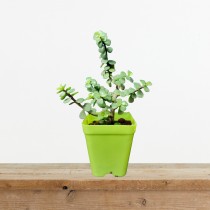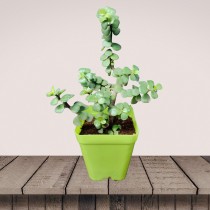60%
off
off
-
Sold
-

-

out
Aparajita (Clitoria ternatea)
Aparajita, also known as Butterfly Pea, Blue Pea, or Asian Pigeonwings, is a fast-growing perennial vine native to tropical Asia. Renowned for its striking blue, white, or purple flowers, this plant holds significant value in traditional medicine, culinary arts, and ornamental gardening.
Botanical Overview
- Scientific Name: Clitoria ternatea
- Family: Fabaceae
- Common Names: Aparajita, Butterfly Pea, Blue Pea, Asian Pigeonwings
- Origin: Tropical Asia
- Growth Habit: Perennial climbing vine
- Height: Up to 3 meters (10 feet)
- Flowering Season: Throughout the year in favorable climates
Key Features
- Flowers: Vibrant blue, white, or purple blooms with a unique shape resembling a butterfly; used in teas and as natural food coloring.
- Foliage: Compound leaves with 5–7 leaflets, providing a lush green backdrop to the vivid flowers.
- Growth: Rapid climber, ideal for trellises, fences, and arbors; can also be grown in pots with support.
- Pollinator Attraction: Attracts bees and butterflies, enhancing garden biodiversity.
Cultivation & Care
- Sunlight: Thrives in full sun; requires at least 6–8 hours of direct sunlight daily.
- Soil: Prefers well-draining soil rich in organic matter; tolerates a range of soil types.
- Watering: Water regularly to keep the soil moist but not waterlogged; reduce frequency during cooler months.
- Fertilization: Apply a balanced, organic fertilizer monthly during the growing season to promote flowering.
- Pruning: Regular pruning encourages bushier growth and more blooms; remove dead or weak stems to maintain plant health.
- Propagation: Easily propagated through seeds or stem cuttings; soaking seeds overnight can enhance germination.
- Pest Management: Generally pest-resistant; occasional aphid or spider mite infestations can be managed with neem oil sprays.
Uses & Benefits
- Medicinal: Used in Ayurveda to treat various ailments including respiratory issues, digestive disorders, and mental health conditions; possesses anti-inflammatory and antioxidant properties. [Source]
- Culinary: Flowers are used to make herbal teas known as Blue Tea, which is rich in antioxidants and known to aid digestion and support weight management. [Source]
- Ornamental: Popular in gardens for its vibrant flowers and rapid growth; enhances aesthetic appeal and provides natural shade when grown on trellises.
- Environmental: Improves soil fertility through nitrogen fixation; supports pollinators, contributing to ecological balance.
Considerations
- Invasiveness: In some regions, Aparajita can spread rapidly; regular pruning helps control its growth.
- Climate Sensitivity: While tolerant of various climates, extreme cold can damage the plant; in colder regions, consider growing it as an annual or in containers that can be moved indoors.
- Consumption: While generally safe, it's advisable to consult a healthcare provider before using Aparajita for medicinal purposes, especially during pregnancy or when on medication.

